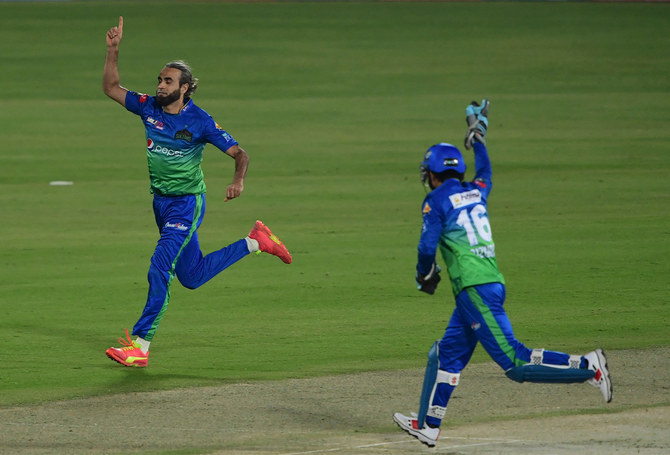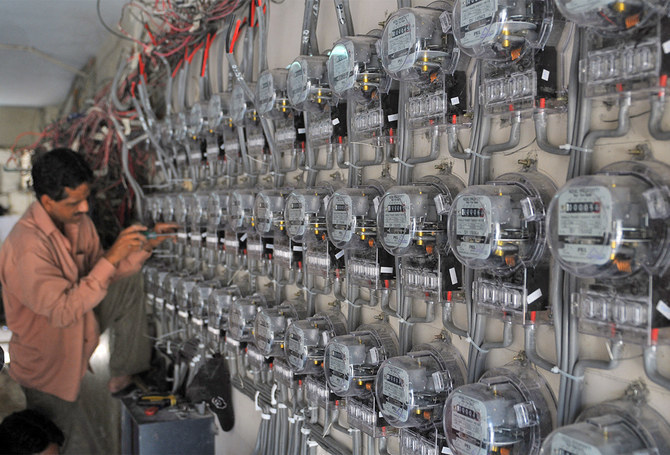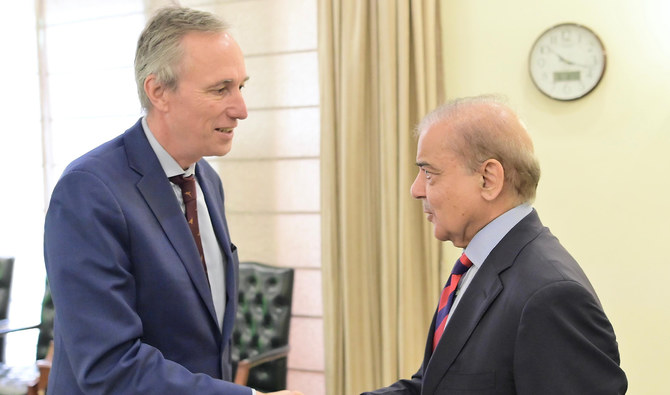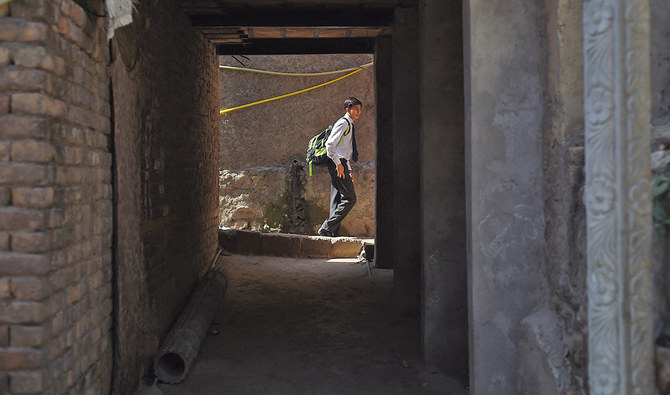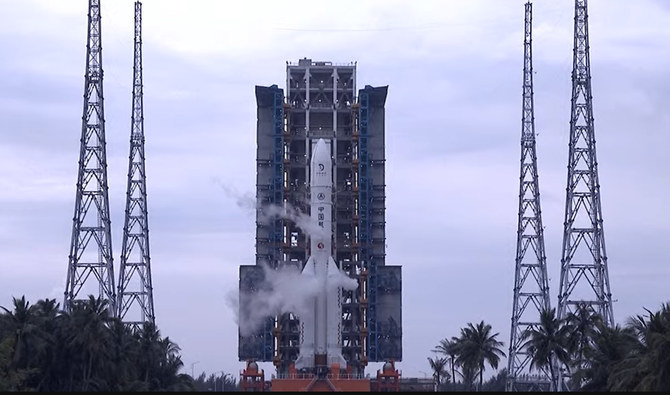KARACHI: A caption’s knock of 52 off 47 balls by Mohammad Rizwan and brilliant bowling by spinner Imran Tahir helped Multan Sultans defeat Karachi Kings in a low-scoring opening match of HBL Pakistan Super League (PSL) at the National Stadium Karachi on Thursday.
Rizwan was still on the crease with yet another half century when his partner Tim David smashed the ball out of the ground to secure a seven-wicket victory with 10 balls remaining.
Karachi Kings could not take too many wickets after the team, led by Babar Azam, put an easy target of 124 runs on the board for a very good batting side.
Kings’ Mohammad Nabi and Mohammad Ilyas took three wickets.
Multan Sultans’ Imran Tahir picked up Sharjeel Khan (43), Muhammad Nabi and Tom Lammonby to stop the rival team from scoring a big total.
Earlier, the seventh edition of the country’s most popular HBL PSL T20 cricket tournament began with an electrifying curtain-raiser ceremony,
At the outset of the event, popstars Atif Aslam and Aima Baig sang the official PSL7 anthem. A special video message by Prime Minister Imran Khan was also played out during the ceremony before the fireworks began.

The combination of photos shows fireworks and popstars Atif Aslam and Aima Baig performing the opening ceremony of Pakistan Super Leagues' seventh edition in Karachi on January 27, 2022. (Photo courtesy: Pakistan Cricket Board)
“I’m opening the seventh PSL and I hope every team fights till the last ball and entertains the public,” said the prime minister.
Karachi on Wednesday reported 1,542 new COVID-19 cases with an infection rate of 40.91 percent. However, the country’s cricket board has already announced strict measures to prevent the virus spread during the tournament.
Going by the directives of the National Command and Operation Center, the PCB has reduced the seating capacity of the National Cricket Stadium to 25 percent for the first 15 matches to be played in Karachi.
It is yet to announce its decision on the number of spectators during the second phase of the tournament which will be held in Lahore.
“We have taken strict security measures to make the tournament a success,” Muqadas Haider, deputy inspector general of police who looks after the city’s eastern zone where the cricket stadium is located, told Arab News.
He said 6,000 police personnel would perform security duty at different routes in and around the tournament venue.
“Paramilitary Rangers have also been asked to perform security duty in the city,” he added.
The first few editions of the tournament attracted large numbers of people in the United Arab Emirates – where PSL was launched – and Pakistan.
Apart from the two teams that are playing the first match on Thursday, Lahore Qalandars are captained by Shaheen Shah Afridi who has witnessed a meteoric rise in international cricket since his debut in 2018.
Islamabad United are led by Shadab Khan while Sarfaraz Ahmed will continue to command Quetta Gladiators.
Peshawar Zalmi will be led by Shoaib Malik in the first match as skipper Wahab Riaz is in isolation after testing positive for COVID-19.
PSL has established itself as one of the top T20 leagues around the world and has featured some of the best international cricketers.
Given the competitiveness of the tournament, the league has witnessed five out of six sides getting crowned as champions since its inception in 2016.
The inaugural champions, Islamabad United, are the only ones who have bagged the title twice.
Peshawar Zalmi won the tournament in 2017 after beating Quetta Gladiators in the final match in Lahore. This was also the first HBL PSL contest that took place on Pakistan’s soil.
According to PCB, Pakistani cricket fans will be able to watch all the matches on A Sports and PTV Sports.
HBL PSL 7 will also be broadcast around the world by Fox Sports (Australia), Etisalat (Middle-East and North Africa), Flow Sports (Caribbean), Sky NZ (New Zealand), Sky Sports (United Kingdom), Sony (South Asia outside Pakistan), Super Sports (Sub-Saharan Africa) and Willow TV (North America).
Daraz App will live-stream the action in Pakistan, while OTT platforms ICC TV and Tapmad will also telecast the tournament.



